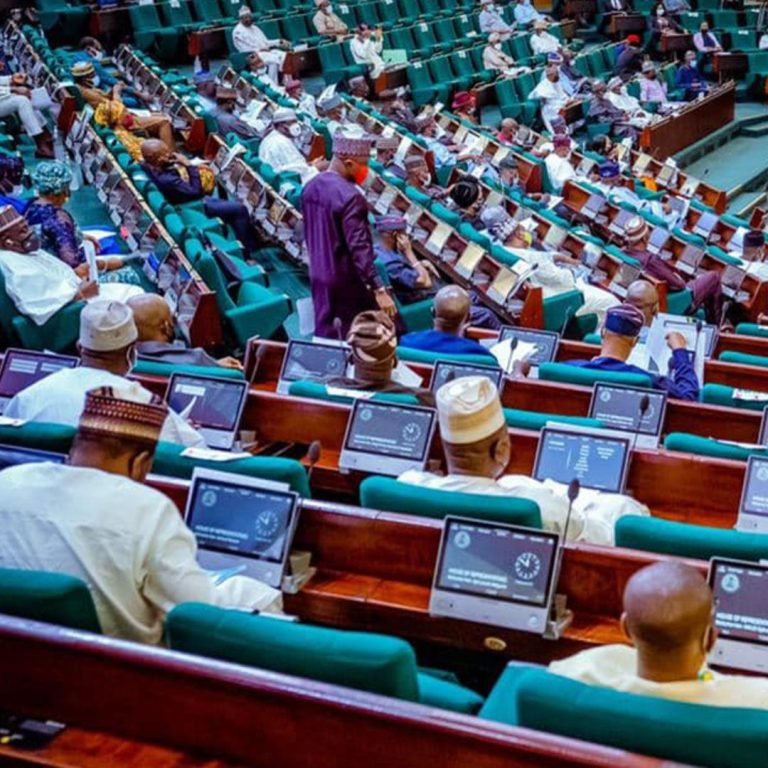The only thing President Tinubu likes more than being president is recycling his “it gets worse before it gets better” promise. A recent economic report from the Central Bank of Nigeria (CBN) shows that we may have to get used to the “worse” because the “better” part of that promise isn’t happening anytime soon.

The CBN report shows that Nigeria’s fiscal deficit hit ₦4.53 trillion in the second quarter of 2024, a big jump from the ₦3.88 trillion it was three months before that. A fiscal deficit occurs when the government starts spending more than it earns from taxes and other sources. In simple words, this means that Nigeria is spending way more than it earns and is borrowing money more than ever to make up for its red account balance.
The CBN report also shows that Nigeria made a total of ₦2.3 trillion in revenue in the second quarter of 2024, which is slightly higher than its earnings from the previous quarter. But that increase in revenue doesn’t help the economy because it is still 52% short of what the government needs to cover the gap between what it earns and what it spends.
If you think this is a tight financial spot, you might start shouting after you find out where the larger percentage of this money went during the CBN review period. In the second quarter of the year alone, government-related expenditures were ₦6.83 trillion.
Now here’s the part that will make you see that Nigeria’s financial predicament might be more of a misplaced priority problem–Almost 90% of the money the Nigerian government spent during this period was used to cover official expenses, (like salaries for government officials and other government-related financial obligations) and pay off high interest on existing debts.
Why is this a problem?
The Central Bank’s Monetary Policy Committee ( which makes financial decisions to ensure price stability and support the government’s economic policy) has started raising red flags, warning that Nigeria’s rinse-and-repeat debt reliance will only worsen things for its citizens.
In March 2024, the Debt Management Office (DMO)—the agency that handles Nigeria’s debt—announced that Nigeria’s total debt had hit ₦121.67 trillion (around $91.46 billion). That’s a disturbing jump from the ₦97.34 trillion it was in December 2023.
This level of debt accumulation screams, “Nigeria is in trouble”.
What’s the government doing about this?
So far, the only notable solution the Tinubu-led administration has proposed is stopping the country’s dependence on the Central Bank’s “Ways and Means” facility (which is basically, a government reserve for emergency cash). For this plan to work, the government will only have to spend what it makes. But the country doesn’t even make enough for that plan to work. This leaves regular Nigerians like us in a tight spot.
The president has also tried cutting down on the cost of governance. Now, ministers and heads of departments of public agencies are limited to just three vehicles in their official convoys. For context, most of these ministers like to go big and ride in style. The recently dismissed Minister of Women Affairs, Uju Kennedy for instance, had a convoy of six vehicles and spent ₦1.5 million fueling those cars during a work trip. That gives you an idea of what other ministers spend on car fueling and maintenance every month. The President also cut his own entourage for foreign trips from 50 to 20. Even though we’re not sure how this particular cutdown would significantly impact the Nigerian economy, limiting government spending to the barest minimum is still a great idea. Hopefully, Tinubu’s cost-cutting measures will be the first of many to come.
How will this make 2025 hard on you?
In the President’s attempt to balance things out, we’ll most likely see his administration propose more taxes that would make life more expensive for Nigerians in 2025. Already, there’s a bill proposing that Value Added Tax (VAT) should be increased from 7.5% to 10% in 2025. Since VAT is charged on almost all the basic items you can think of – from food to electricity – you can expect things to get even more expensive than they currently are.




